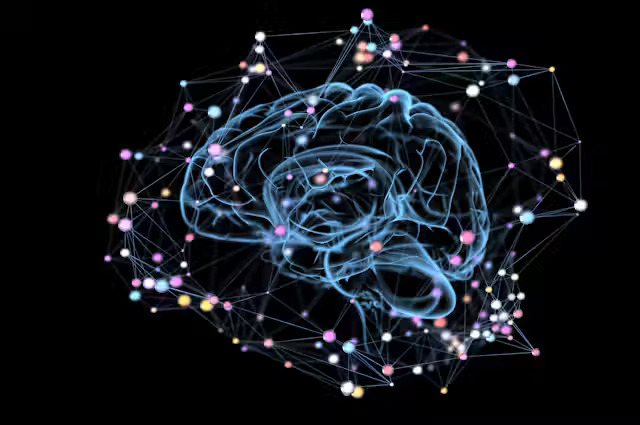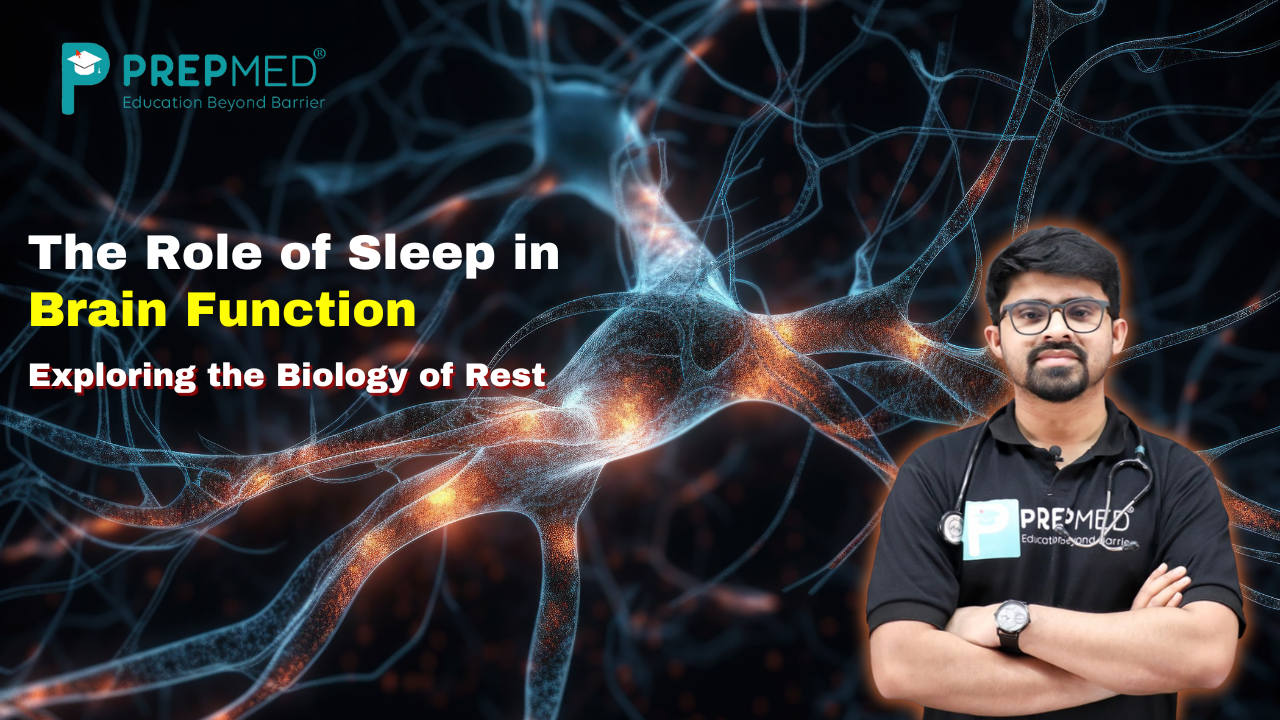January 15, 2025
The Role of Sleep in Brain Function: Exploring the Biology of Rest
Sleep is inevitably an essential physiological function that affects the overall functioning of the brain. However, it should be noted that the overall biology of sleep and its influence on the brain is still under investigation.
- Sleep is a restorative process of the brain, and it plays an important role in information processing, mood regulation, and memory formation.
- During sleep, the brain replays information it has acquired in the day – which enhances learning – clears out waste products, and helps reform connections between neurons to solve problems.
- The role of sleep in maintaining the rigidity of the nervous system and emotional state of a person is also highlighted; lack of sleep affects the ability to regulate emotions and can lead to the development of anxiety or depression.
- Each stage of sleep has a different purpose and is vital. REM and non-REM sleeping are significant for the overall well-being of the brain REM sleep for example is associated with memory and creativity while non-REM who involve different stages of sleep that are good for physical renewal and other cognitive functions.
Understanding the biological processes that take place during sleep not only helps us recognize the importance of rest but also highlights the consequences of sleep deprivation. Explore the science behind the impact of sleep on brain function, examining the cellular, molecular, and neural processes that make sleep a vital component of maintaining overall mental well-being.
The Science of Memory Consolidation During Sleep
- Memory consolidation during sleep is crucial for stabilizing short-term memory and committing it to long-term storage, improving learning and memory recall.
- Indeed during sleep, and especially during the non-REM stages of sleep, an individual’s brain strengthens all neural connections formed during wakefulness.
- In the later stages of non-REM sleep, known as slow wave sleep there is enhanced activity in the brain, and helps consolidate information acquired during the day.
- It has been found that during sleep, memories are consolidated and new information is integrated with prior information, thereby making it easier to learn.
- The hippocampus, which is responsible for the creation of new memories, sends signals to the neocortex during the night to transfer information. It thus guarantees that information is stored in long term memory regions to be recalled in the future.
- Research has also indicated that sleep enhances creative thinking since it rewires memory connections in a way that the mind cannot accomplish when awake. In conclusion, memory consolidation during sleep plays a relevant role in learning, problem-solving, and therefore overall cognitive function, thus emphasizing the value of good night sleep.
How sleep aids in memory storage and recall
Sleep is important for memory because sleep facilitates the underlying mechanisms of memory consolidation that alter short term memory to long term memory. Any new information we acquire is first held in the hippocampus, which is a short-term storage center in the brain. During sleep, especially in the slow-wave sleep which is the period of non-REM sleep, the consolidation of these memories occurs. This process is called memory consolidation.
- During the non-REM sleep, slow-wave sleep (SWS) plays an important role in the consolidation of declarative memories which includes facts, events and experiences, and moves the information from the hippocampus to the neocortex to store the long-term memory.
- It consolidates the neural pathways created during learning and makes the memory stable and highly recallable.
- While REM sleep is vital for procedural memories which are associated with the skills and tasks, REM sleep is important because during this stage the brain is actually organizing and storing all of the memories, thus enhancing and developing motor skills and problem-solving capabilities.
NOTE:
- Additionally, sleep plays an important role in memory consolidation in which unnecessary and irrelevant information is eradicated, while essential information is retained.
- Besides enhancing information brief retention, sleep even allows for what was stored to be retrievable in an easier manner if need be since there is less outside interference.
- Hence, it is crucial to have restful night sleep if one wants to boost up their ability to remember what has been learned or taught as well as improve their thinking abilities.
The role of deep sleep in strengthening neural connections

Slow-wave sleep (SWS) also known as deep sleep, plays a vital role in consolidating neural connections and memories. During this stage, the brain experiences synchronized, slow electrical activity that is crucial for various restorative functions like memory consolidation to occur. The brain solidifies the information gathered throughout the day during sleep, transferring it from short-term storage in the hippocampus to long-term storage in the neocortex.
During deep sleep, the brain forms slow wave patterns that aids in the synchronization of the hippocampus and the neocortex to consolidate memories. Such neural connections are strengthened, meaning that the information can easily be retrieved and used in the future. The brain also acts in replaying the events of the day during deep sleep, effectively reactivating the neural connections involved in recent learning experiences. This process not only creates new memories but also integrates them into existing knowledge networks, improving the brain’s ability to recall and apply learned information.
How disruptions in circadian rhythms affect cognitive health
Disruptions in circadian rhythms, the body's natural 24-hour cycles that regulate sleep, wakefulness, and other physiological processes, can significantly impact cognitive health. The circadian rhythm is controlled by the brain’s suprachiasmatic nucleus (SCN), which responds to external cues like light and darkness to synchronize the body’s internal clock. When this rhythm is disturbed whether by shift work, jet lag, irregular working, sleeping at night and day, etc the brain becomes distorted in their useful tasks that include memory consolidation, attention, and problem-solving.
- Sleep is one of the critical areas that are most affected by the effects of circadian disruption.
- Lack of consistent sleep cycles can result in short or poor-quality sleep, which is essential for cognitive functioning. Getting inadequate, poor quality of sleep, particularly deep and REM sleep, hinders memory consolidation, and reduces one’s ability to focus and one’s ability to learn.
- Altogether, when circadian rhythms are disrupted for a period of time, there is a clear decline in cognitive abilities and an increased probability of development of diseases such as Alzheimer’s and Parkinson’s.
Sleep's role in enhancing cognitive flexibility and creativity
Sleep is vital in improving cognitive flexibility and creativity, two cognitive functions are key in enabling a person to adjust to new circumstances and create valuable solutions. While cognitive flexibility has been defined as the capacity for the brain to shift its focus to another concept or to learn new rules or patterns, creativity has been described as the ability to generate ideas that are novel and useful. Both of these processes are strongly impacted by restorative properties of sleep and even more during the phase of REM (Rapid Eye Movement).
FAQS:
1. How sleep contributes to memory consolidation?
During sleep, memory is reassembled and consolidated, moving information from the hippocampus to the neocortex, and strengthening it in the process. It reconsolidates these pathways, which helps with memory recall during our deep sleep.
2. What is the impact of sleep on the processing of information in the brain?
When one gets enough sleep, he or she is able to concentrate, pay attention, reason properly, and solve problems. It plays a major part in the consolidation of memories and information processing hence increasing the ability in performing other activities during the day.
3. Can taking naps help to enhance cognitive performance?
It is stated that people may obtain better memory, focus, and imagination by taking short naps, including REM. Nonetheless taking long napping sessions during the day can disrupt the night sleep and hence the cognitive performance.






